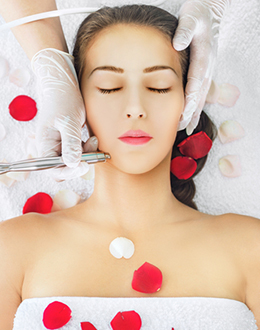Dispensing skin care continues to be attractive to physicians in the United States as the number of physicians dispensing skin care products increases in 2016, especially among medical spas and other physicians. As the demand for cosmetic procedures continues to increase, physicians typically recommend take-home skin care products to be used in combination with procedures to increase the benefits or reduce the side effects of procedures. However, dispensing skin care products have been a tradition/mainstay mainly for dermatologists and plastic surgeons as over 40% of both these physician types, respectively, have been dispensing skin care products for over 10 years, according to Kline’s soon-to-be-published Physician-dispensed Skin Care: Perception and Satisfaction Survey.
According to the survey, over 50% of physicians dispensing skin care products experience growth in skin care retail sales in 2016. The growth of skin care sales is strong, especially among dermatologists and plastic surgeons, as 21% of them cite that the sales growth from skin care products have increased significantly in 2016. Almost one-fifth of physicians generate over 15% of their revenues from the sales of skin care products, and nearly three-fourths of respondents want to increase their skin care sales over the next 12 months. This is good news for marketers who have a foothold in this channel, such as ZO Skin Health, Obagi, and SkinCeuticals.
The survey mainly focuses on what are the most important attributes to physicians dispensing skin care products while choosing a brand and how various brands perform against these attributes. According to the survey findings, the most important attribute to dispensing physicians is order-to-delivery and customer service with plastic surgeons considering this attribute to be more important than other physician types. It can be noted that all the leading brands also receive high performance scores on order-to-delivery and customer service. It is interesting to note that medium-sized brands, such as Elta MD and ZO Skin Health, tend to receive the best performance scores overall. However, larger brands, such as SkinCeuticals, Obagi, and SkinMedica, have stronger brand awareness scores. The report also provides detailed insights on what aesthetic physicians value most from their skin care partners, as well as the ratings they give their brands across several attributes, ranging from training and education to marketing support.
According to the survey, anti-aging continues to be a mainstay, as over 40% of physicians note that aging is the most common concern among their patients. Aging is the largest skin care concern in terms of sales value and continues to record strong growth driven by new product launches, growing interest from consumers in these products, and the increasing popularity of non-invasive procedures according to Kline’s Professional Skin Care Global Series report. Manufacturers are formulating their skin care products with retinols and peptides that claim to provide better results.
The professional skin care market continues to see key developments in 2016, including product innovations, channel developments, changes in competitive landscape, and mergers and acquisitions. Kline’s Professional Skin Care Global Series report, which will be available in the second quarter of 2017, will provide insights on country level demand for consumable topical skin care products sold through and used in professional channels of distribution, such as doctors’ offices, beauty institutes and hair salons, and spas, for countries including China, Europe, and South Korea.
Written by Sai Swaroop, Project Lead Kline Consumer

